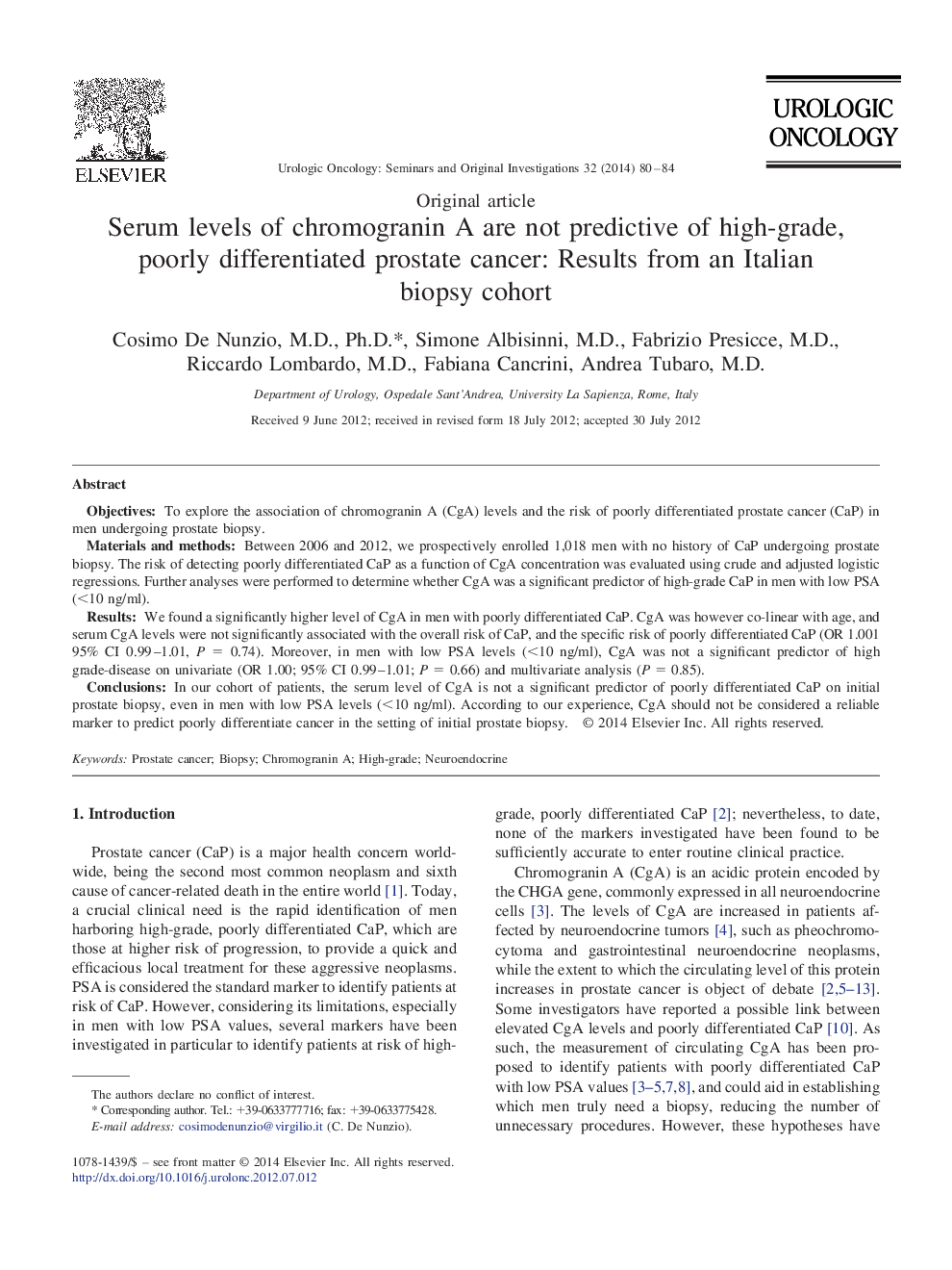| Article ID | Journal | Published Year | Pages | File Type |
|---|---|---|---|---|
| 3999735 | Urologic Oncology: Seminars and Original Investigations | 2014 | 5 Pages |
ObjectivesTo explore the association of chromogranin A (CgA) levels and the risk of poorly differentiated prostate cancer (CaP) in men undergoing prostate biopsy.Materials and methodsBetween 2006 and 2012, we prospectively enrolled 1,018 men with no history of CaP undergoing prostate biopsy. The risk of detecting poorly differentiated CaP as a function of CgA concentration was evaluated using crude and adjusted logistic regressions. Further analyses were performed to determine whether CgA was a significant predictor of high-grade CaP in men with low PSA (<10 ng/ml).ResultsWe found a significantly higher level of CgA in men with poorly differentiated CaP. CgA was however co-linear with age, and serum CgA levels were not significantly associated with the overall risk of CaP, and the specific risk of poorly differentiated CaP (OR 1.001 95% CI 0.99–1.01, P = 0.74). Moreover, in men with low PSA levels (<10 ng/ml), CgA was not a significant predictor of high grade-disease on univariate (OR 1.00; 95% CI 0.99–1.01; P = 0.66) and multivariate analysis (P = 0.85).ConclusionsIn our cohort of patients, the serum level of CgA is not a significant predictor of poorly differentiated CaP on initial prostate biopsy, even in men with low PSA levels (<10 ng/ml). According to our experience, CgA should not be considered a reliable marker to predict poorly differentiate cancer in the setting of initial prostate biopsy.
